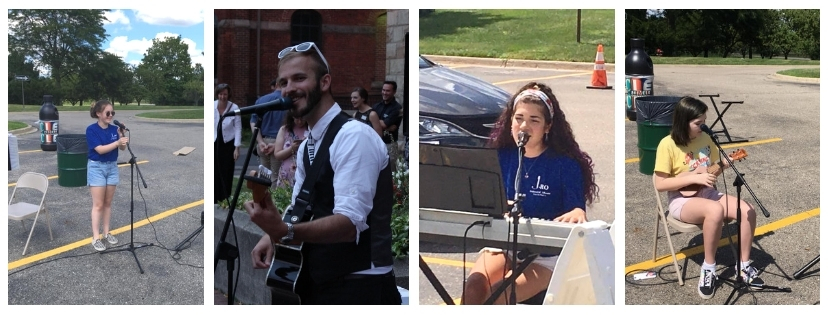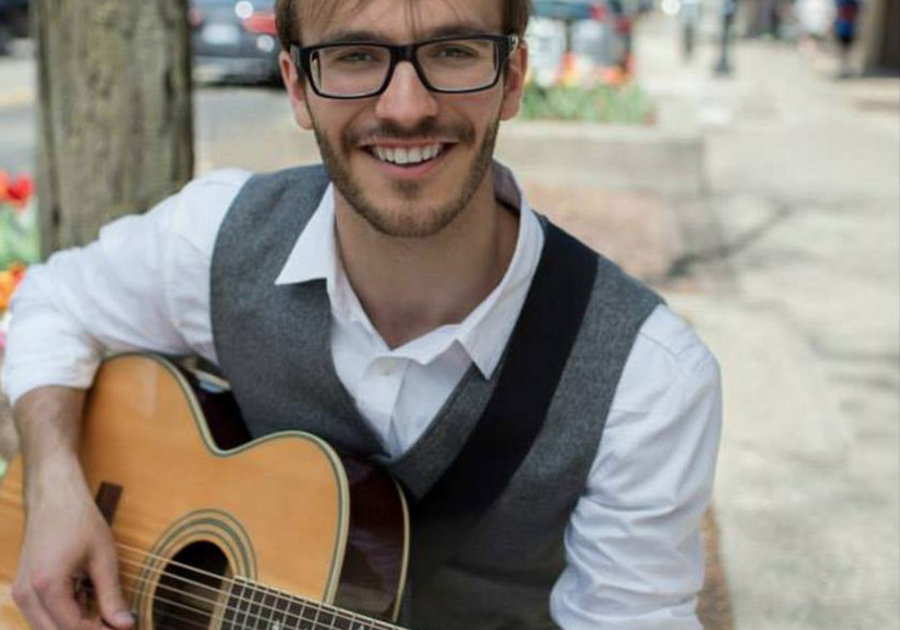2020 has been an unprecedented time, no matter how you look at it. Because of the global pandemic, the economy, schools, work, activities, and life in general have been disrupted and changed. But many people are finding safe ways to give our kids some normalcy and education, with activities and skills that will help them their entire lives.
One local music teacher has been doing just that. Josh Ross in Troy is offering music lessons for adults, teens, and children in a safe setting and virtually, so no one has to miss out in the joy of music. We spoke to him about his studio and career in an interview.
What brought you to teaching music? How long have you been teaching and playing?
I started taking piano lessons as a kid but did not love it. I asked my dad to learn guitar. He persuaded me to practice piano for a year and give my fingers a chance to grow. After he saw that I was serious about practicing, he bought me a guitar and invested in guitar lessons. Through playing guitar, I fell in love with music and then got into singing which got me even more excited about music and learning other instruments.
Each year, I poured more and more into music. I saw the huge transformation that music made in my life. Music gave me purpose and passion. I wanted to share this love for music with others. So, I started teaching music at 13 by putting up a flyer at a local ice cream shop. I still remember getting my first students and keeping them for several years. I continued teaching music through high school and college.
After graduating college, I moved back to my home-town and launched the J-RO School of Music out of my mom's house. After a year or so, I had enough students to move out and buy a house with my wife. Within two years of buying our house, I had so many students that the neighbors were starting to complain and the city of Troy came to my house and gave me two weeks to find a commercial space. Thankfully, I found a perfect space less than a mile from my house and moved the J-RO School of Music to its current location in 2017.
What instruments do you teach, and what method do you use? Which instrument is your favorite?
We primarily teach piano, voice, and guitar. We also have some bass and ukulele students. Our students follow a hybrid curriculum that incorporates monthly exercises, progressively more challenging songs, and their own selection of songs they want to learn. This empowers students to learn at their own pace, play songs they enjoy, and learn the technical skills along the way. My favorite instrument is the voice because I take it with me everywhere I go.
How have things changed now that we have to take Covid precautions?
Since Covid, we have begun offering a hybrid of virtual and in person lessons. Students and families can choose what works best for them.
We have hand sanitizer in every room and ask that students come in with masks. We clean the studio and surfaces daily and do a deep clean weekly. We create an environment where students and families feel safe while enjoying music they love!
What can students expect during a class period?
Students can expect to warm up, practice the monthly exercise, and then dive into their individual songs as they continue to grow in confidence and technique. My team and I do our best to inspire our students at each lesson, give them specific instruction, and give them time to apply what they learn during the lesson.
Do you have any opportunities for new students to try a class with friends or free before starting?
Yes, you can go to jropro.com to schedule a free assessment. Students can email us at info.jropro@gmail.com if they want to invite one of their friends to attend a class with them. We have many students with families and friends who all take lessons at J-RO.
How can we, as parents, encourage our children’s musical interest or talent?
The number one thing students need from their parents is encouragement. It's not easy to learn a new instrument or to develop the habit of regular practicing. I find that when parents encourage their children, are specific with their praise (saying more than just "good job"), they inspire their kids to practice and learn more.
Students benefit from a routine, a regular time and place to practice, and exposure to music from artists they may like. I find that it is rarely helpful when parents put too much pressure on their children to practice or perform. There is a delicate balance between encouraging a child to practice and demanding it. The latter leads students to lose interest and to associate practicing with a chore or something they don't want to do. Make music a regular part of your lifestyle and enjoy the process.
What additional benefits are there for children learning music or an instrument?
Children and adults who take lessons gain confidence, self-discipline, communication skills, and often leadership skills. Music empowers students to find a deeper sense of purpose and connection with themselves and with others.
How much do you expect students to practice on their own?
The amount of practice time I recommend depends on the age, skill level, and interests of the individual student, so there is a wide range here. To start, I recommend making it part of your daily/weekly routine to practice every day. It is helpful even to practice for 10-15 minutes as a start. Rather than simply focusing on the amount of time, it is important to practice with a specific progress goal in mind to ensure that you actually improved some aspect of your playing. Some students who are more advanced have the capacity and interest that enables them to practice for hours. This is not the norm, however, those students who fully dive in will make progress much faster and with more ease.
Do your students participate in recitals, public performances, or competitions?
Absolutely. We offer 4-6 optional performances a year and other performance opportunities throughout the year. Students are also welcome to perform in competitions.
How do you handle a “tough” student—maybe one that is disruptive, won’t listen, doesn’t practice, or just doesn’t find any joy in lessons?
Fantastic question. While I believe that music education can help anyone, it might not be the right time or fit for everyone right now. At first, I consult the student and their family if I have concerns about their behavior or progress. If I find that they simply do not have the desire to invest themselves in learning, then I will recommend that they stop lessons for now or refer them to a teacher that may be better suited to work with them.
Ultimately, we find it's more of a win-win to work with students who want to be here and want to learn.
What makes you “different” from other music teachers? How does that help your students learn or enjoy instruments and music?
I focus on the person first and the music second. I find that the most important part of teaching music is caring about the people you are teaching and adjusting as necessary to inspire them to grow. I don't believe that most people want to "learn guitar." They want to play guitar. And they don't want to learn songs they don't like. They want to play awesome songs that they love. I incorporate this fact into the way I teach so that students maximize the time they can spend "playing" their instrument and playing or singing songs they love.
I find that this inspires students to learn faster, stay longer, and develop a lifelong love for music. I also find that this approach enables students to become the confident musicians they want to be!
Where can we find more information, ask questions, or see you and your students perform?
You can go to jropro.com to schedule a free assessment and to see student performances. Email me at info.jropro@gmail.com with any questions!
 |



